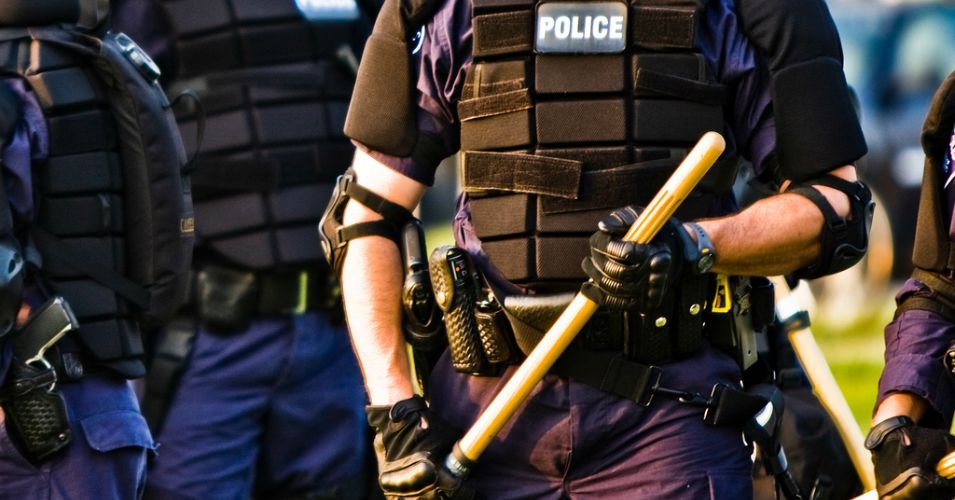

By Crescenzo Vellucci
Vanguard Sacramento Bureau
SACRAMENTO – The votes were not there in the State Senate Public Safety Committee this week for a pro-police measure that didn’t address reducing lethal use-of-force killings – and the seemingly all-powerful police unions chose to punt. And fight another day.
After two years of attempts, it now appears that the populist surge to change a nearly century and a half old lethal use-of-force policy for law enforcement has a real opportunity to become law.
Despite law enforcement protestations.
Law enforcement has been roundly criticized, from people in the streets to editorial boards of major newspapers, for not doing enough – or anything – to stop rogue officers who shoot first and ask questions later, using their weapons, often against unarmed civilians, without taking steps to de-escalate tense situations.
SB 230, which would have re-trained the state’s law enforcement officers to consider, but not mandate, other forms use-of-force first, is now linked with AB 392 – which will require officers to use non-lethal use-of-force first. In short, ask questions before shooting first.
The committee approved the linkage between SB 230 and AB 392 Tuesday after SB 230 author Sen. Anna Caballero (D-Salinas) agreed to remove portions of the bill that conflicted with that of Assemblyperson Shirley Weber’s AB 392.
SB 230, however, didn’t require any change to the “reasonable” standard that has allowed officers to shoot and often kill people – largely people-of-color – if they simply believe there is a  danger. It has resulted in people being killed who are not armed, including the Stephon Clark case last year in Sacramento where the 22-year-old held only a cell phone as he tried to enter his grandparents’ home.
danger. It has resulted in people being killed who are not armed, including the Stephon Clark case last year in Sacramento where the 22-year-old held only a cell phone as he tried to enter his grandparents’ home.
But now, SB 230 – which does require that officers be trained in the reduction of lethal use-of-force – will mandate that the training to be consistent with AB 392, which will, if approved by the legislature, change the 1872 policy.
Law enforcement officers would be required to use other non-lethal forms of force, including de-escalation and warnings, before they consider lethal force.
“This might be something I can vote for now,” said Senator Steven Bradford (D- Los Angeles), noting that just retraining officers is not the answer.
“We have to change the bias…the bedrock of these shootings is racist,” he said, explaining that he believes the 1872 use of lethal force policy is a “direct” result of the Emancipation Proclamation, which freed Black slaves.
“This is the origin of deadly force. It’s not about public safety but about racism,” and another way to regulate the Black community,” he said, referring to federal reports today linking white supremacists recruitment into federal and local law enforcement.
Committee Chair Nancy Skinner (D-Oakland) confirmed that SB 230 did not have the votes to move through her committee.
“Now, if AB 392 becomes law we will need training, and SB 230 will do that as it is being amended. SB 230 cannot advance unless AB 392 passes,” she said.
Skinner also referred to “implicit bias” studies that show common items, such as cell phones, are not considered weapons by people until black faces are shown first. Then, not only police officers but non-officers consider common items to be weapons.
“My bill is linked with hers,” said Caballero. “If (AB 392) doesn’t get through, it all disappears. I don’t think any of us want this to disappear.”
Earlier in the hearing, law enforcement union wrote an open letter, noting “At a time when America is so deeply divided that progress appears out of the question, Californians must come together and rise above…we must replace fear and anger with empathy and understanding. It’s an aspirational vision that is within reach.”
Some probably remain unsure of what law enforcement will really do, including actor Kendrick Sampson (of “How to Get Away with Murder” television show), who, at a rally earlier this month at the Capitol described the feelings of those in communities of color who have been killed by law enforcement, often unarmed.
“It hurts. All we are asking is let us live,” he said. “ It’s an epidemic,” Sampson said about police killings.
“They blame the victims, and there’s no accountability,” he said, adding “the deaths” make “us feel less safe.” He complained that communities of color are “overpoliced and criminalized” while in Beverly Hills “you can’t find a cop…like in the hood.”
Describing how those in some poor communities are “one cell phone, or wallet mistake” away from being killed, Sampson said it’s more about accountability than “just one bad apple” on the police force.
AB 392 will “preserve life…and stop state sanctioned violence” because it’s a “Black and Brown and White problem. This is gun control; police are shooting our families. Let us live,” Sampson said again.

The police union isn’t nearly as influential as they use to be – there is hope.
Title is interesting
Nuance… “curb police killings”
Hope that means ‘curbing killings by police’, AND ‘curbing killing of police’ … I support both “curbings”… yet, drift of article favors one, ignores the other…
Whatever… said my piece (or, peace)…
No it’s a use of force bill – by police – not a bill intended to deal with the use of force on police.